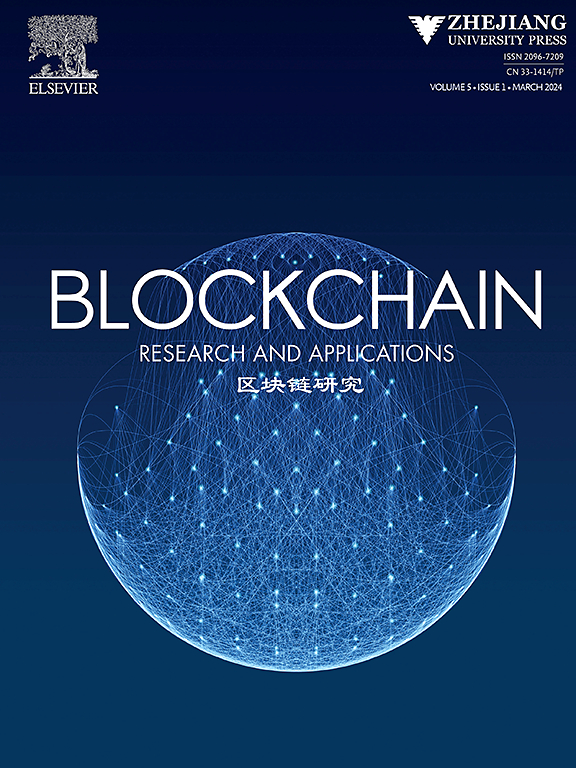财团区块链的容错测试和调优
IF 5.6
3区 计算机科学
Q1 COMPUTER SCIENCE, INFORMATION SYSTEMS
引用次数: 0
摘要
随着区块链的潜在应用日益明显,系统在复杂多变的真实环境中的容错能力也日益成为一个重要的因素。近年来,人们提出了许多面向区块链的容错测试工具。然而,所选择的故障集并不能涵盖财团区块链在实际场景中可能遇到的所有问题。此外,这些工具往往缺少对测试结果的合理性分析。此外,如何在故障连续阶段优化系统性能也是值得考虑的问题。在本文中,我们提出了一个通用的全栈故障注入平台,该平台可以支持分布式场景中不同类型的拜占庭和非拜占庭故障的有序注入。针对故障影响系统性能的基本原理不明确的问题,我们对各种故障对联合体区块链的影响进行了归因分析。基于归因分析得出的结论,设计并实现了测试驱动优化策略。实验结果表明,在大多数故障场景下,该优化策略可将吞吐量降低15%左右,使系统平均延迟缩短到优化前的三分之一以下。本文章由计算机程序翻译,如有差异,请以英文原文为准。
Fault tolerance testing and tuning for consortium blockchain
While the potential applications of the consortium blockchain are becoming increasingly evident, the fault tolerance of systems in complex and changeable real environments has become an increasingly important factor. In recent years, many blockchain-oriented fault tolerance testing tools have been proposed. However, the selected fault sets cannot cover all kinds of problems that the consortium blockchain may encounter in real scenarios. Moreover, a rationality analysis of test results is often missing from these tools. In addition, it is also worth considering how to optimize system performance in the fault continuous stage. In this paper, we propose a general full-stack fault injection platform that can support the orderly injection of different kinds of Byzantine and non-Byzantine failures in a distributed scenario. Regarding the unclear underlying principles affecting system performance due to faults, we conduct an attribution analysis of various faults' influences on the consortium blockchain. Based on conclusions drawn form the attribution analysis, we design and implement the test-driven optimization strategy. The experimental results show that the optimization strategy can shorten the system average delay to less than one-third of that before optimization by reducing the throughput by about 15% in most fault scenarios.
求助全文
通过发布文献求助,成功后即可免费获取论文全文。
去求助
来源期刊
CiteScore
11.30
自引率
3.60%
发文量
0
期刊介绍:
Blockchain: Research and Applications is an international, peer reviewed journal for researchers, engineers, and practitioners to present the latest advances and innovations in blockchain research. The journal publishes theoretical and applied papers in established and emerging areas of blockchain research to shape the future of blockchain technology.

 求助内容:
求助内容: 应助结果提醒方式:
应助结果提醒方式:


